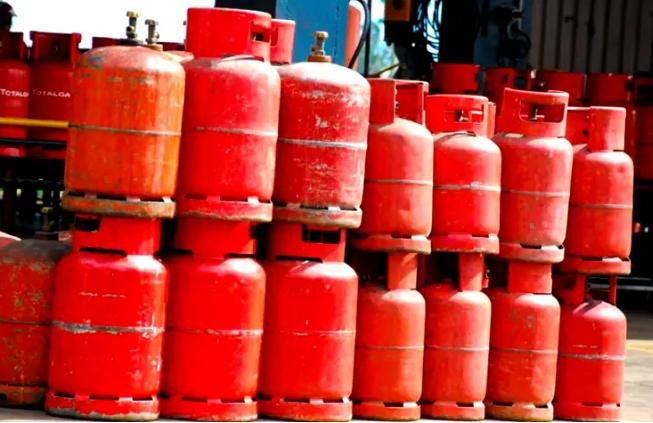The average price of 5kg of cooking gas increased from N4,456.56 in August to N4,474.48 in September, the National Bureau of Statistics (NBS) has stated.
It stated in its “Cooking Gas Price Watch’’ for September 2022 released on Saturday in Abuja that the September price was a 0.40 per cent increase over what obtained in August.
“On a year-on-year basis, the September 2022 price of N4,474.48 for 5Kg of gas was an 86.62 per cent increase over the price of N2,397.60 obtainable for the same volume in September 2021″, it stated.
On states profile analyses, the report stated that Kwara recorded the highest average price of N4,950 for 5kg of cooking gas, followed by Niger at N4,941.67, and Adamawa at N4,928.29.
READ ALSO: Cooking Gas Demand Falls By 38%, Marketers Clash Over Price
It added that Abia recorded the lowest price at N4,044.44, followed by Anambra and Kano State at N4,100.00 and N4,109.67, respectively.
Analyses by geopolitical zones showed that the North-Central recorded the highest average retail price of N4,715.74, for 5kg cooking gas, followed by the Northeast at N4,539.41.
“The South-South recorded the lowest retail price at N4,317.92,” the NBS stated.
It also reported that the average retail price for refilling a 12.5kg cooking gas cylinder increased from N9,899.34 in August 2022 to N9,906.44 in September, indicating a 0.07 per cent increase on a month-on-month basis.
On a year-on-year basis, the price rose by 60.69 per cent from N6,164.97 in September 2021 to the corresponding period in September 2022.
On states analyses, the report indicated that Cross River recorded the highest average retail price for 12.5kg cooking gas at N10,937.50, followed by Kogi at N10,760 and Oyo at N10,723.75.
The lowest average price was recorded in Yobe at N8,350, followed by Katsina and Taraba at N8,545.56 and N9,025.78, respectively, the NBS stated.
Similarly, kerosene price rose to N947.30 per litre in September, showing a 17.2 per cent increase over the N809.52 for which it was sold in August 2022.
According to its “National Kerosene Price Watch’’, on a year-on-year basis, average retail price per litre rose by 118.08 per cent from N434.39 recorded in September 2021 to N947.30 in September 2022.
Further analysis showed that the highest average price per litre of kerosene in September 2022 was recorded in Enugu State at N1,272.50, followed by Ebonyi at N1,263.89 and Cross River at N1,187.50.
The report showed that the lowest price was recorded in Rivers at N686.27, followed by Bayelsa at N715.15 and Nasarawa at N735.29.
Analysis by zone showed that the Southeast recorded the highest average retail price per litre of kerosene at N1,128.28, followed by the Southwest at N1,068.18.
“The Northwest recorded the lowest average retail price at N868.89 per litre of kerosene,’’ the NBS stated.
It added that the average retail price per gallon of kerosene in September 2022 was N3,236.27, showing an increase of 9.79 per cent over the N2,947.65 recorded in August.
According to the report, on a year-on-year basis, the price increased by 110.04 per cent from N1,540.82 recorded in September 2021 to N3,236.27 that was recorded in September 2022.
READ ALSO: Cooking Gas Price Jumps By 240% As Marketers Halt Imports
Analyses by states showed that Abuja recorded the highest price per gallon of kerosene at N4,200.00, followed by Abia at N4,078.57 and Enugu State at N4,052.38.
The NBS stated that Borno recorded the lowest price at N2,500 followed by Zamfara and Delta with N2,555.56 and N2,576.92, respectively.
It added that analyses by zone showed that the Southeast recorded the highest average retail price per gallon of kerosene at N3,607.38 followed by the Southwest at N3,468.42
It stated also that the Northeast recorded the lowest price of N2,803.96 for a gallon of kerosene in September 2022.
NAN
